The difference between first-party and third-party insurance claims is whether the individual filing the claim is the policyholder insured by the insurance company. A first-party insurance bad faith claim arises when a policyholder believes their insurance carrier is handling their claim in bad faith or has unfairly refused to pay a claim. The insured party can file a bad faith insurance claim against their own insurance company for compensation.
A third-party insurance bad faith claim arises when an insurance carrier acts in bad faith towards someone other than the policyholder. Typically this involves a third party suing the policyholder and the insurance carrier committing bad faith during the claims negotiation process. Often this involves an insurer refusing to pay a claim without a reasonable cause or without properly investigating the claim in a timely manner.
Whether the insurance claim is a first-party insurance claim or and third-party insurance claim has a significant impact on the legal requirements for suing an insurance company that has acted in bad faith. Read on to learn the differences between first-party and third-party insurance bad faith claims, including the legal considerations in first-party and third-party bad faith cases.
If you believe an insurance company has acted in bad faith during the claims negotiation process, call (813) 273-0017 for a free consultation and case review. Our insurance bad faith attorneys have decades of experience fighting insurance companies in both first-party and third-party insurance disputes.
First-Party Insurance Bad Faith Claims
First-party bad faith claims involve policyholders accusing their own insurance company of unfair practices. Here are the key aspects to consider:

The Policyholder’s Relationship in First-Party Claims
As a policyholder, you have a direct contractual relationship with your insurance company. You pay premiums in exchange for coverage and the expectation that your insurance company will act in good faith when handling your claims.
Examples of First-Party Bad Faith Claims
First-party bad faith can occur when an insurance company unjustifiably denies a valid claim, unreasonably delays processing or payment without valid reasons, fails to adequately investigate the claim, or offers a settlement significantly lower than what is reasonable.
Legal Considerations in First-Party Insurance Disputes
In Florida, policyholders can pursue legal action against their insurance company for first-party bad faith. If successful, they may be entitled to compensation beyond the policy limits, including consequential damages and attorney’s fees.
Third-Party Insurance Bad Faith Claims
Third-party bad faith claims involve injured parties, who are not the policyholders, accusing an insurance company of acting in bad faith during settlement negotiations or the claims process. Consider the following aspects:
The Injured Party’s Perspective in Third-Party Claims
In a third-party bad faith claim, the injured party is seeking compensation from the policyholder’s liability insurance policy. They believe that the insurance company has not acted in good faith during settlement negotiations or has unreasonably delayed resolving the claim.
Liability Insurance Coverage in Third-Party Claims
Liability insurance provides protection to policyholders against claims made by third parties for injuries or damages caused by the policyholder’s actions or negligence. The insurance company typically has a duty to defend the policyholder and potentially indemnify them.
Examples of Third-Party Bad Faith Insurance Claims
Third-party bad faith may arise when an insurance company fails to engage in fair settlement negotiations, unreasonably delays the resolution of the claim, or refuses to acknowledge the policyholder’s liability when the facts clearly support it.
Legal Considerations in Third-Party Insurance Bad Faith Claims
In Florida, injured parties can pursue a third-party bad faith claim against the insurance company if they believe that the insurer has acted in bad faith. Successful claims may result in the insurer being liable for damages beyond the policy limits and attorney’s fees.
Conclusion
Understanding the difference between first-party and third-party insurance bad faith cases is critical. First-party bad faith involves policyholders accusing their own insurance company of unfair practices, while third-party bad faith involves injured parties accusing the insurer of acting in bad faith during settlement negotiations or claims processing.
Contact Our Experienced Insurance Bad Faith Lawyers
Swope, Rodante P.A. is the leading insurance bad faith law firm in Florida with 40 years of experience winning cases against large insurance companies.
We specialize in handling complex cases and will provide expert guidance to help you navigate the claims process. If your insurance company refuses to pay the compensation you deserve or is treating you unfairly, experienced legal representation is crucial to protecting your rights and securing the compensation you deserve.
Call (813) 273-0017 for a free consultation and case review from our insurance bad faith lawyers.














